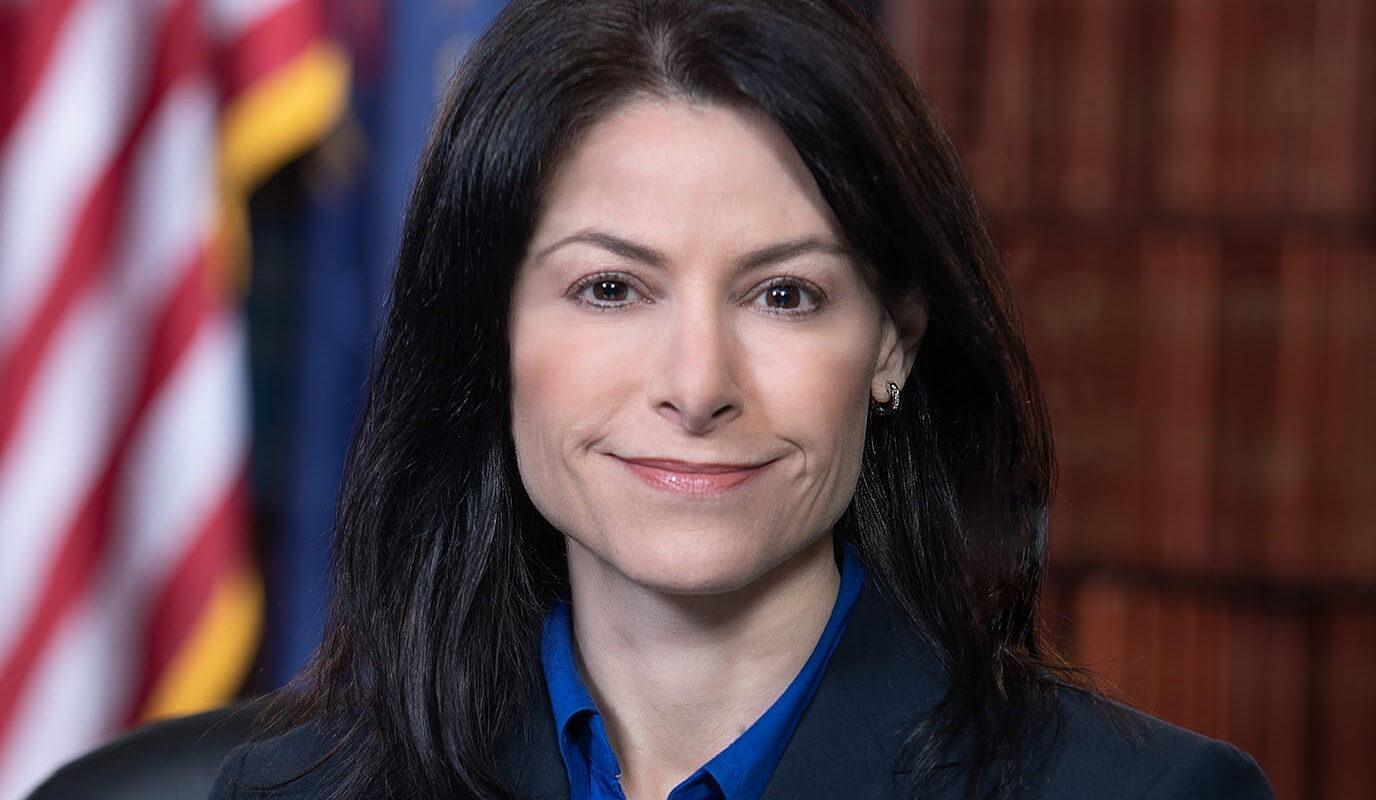Michigan Attorney General Dana Nessel joins 18 states in suing the U.S. Department of Energy over a new funding cap that could undermine state energy programs.
Lawsuit Filed to Block New Federal Energy Program Restrictions
In a press release issued on August 18th, Michigan Attorney General Dana Nessel has joined a multistate coalition suing the U.S. Department of Energy (DOE) over a recently announced cap on federal reimbursements for state-run energy programs. The policy, issued in May, limits reimbursements for indirect and fringe costs to 10 percent of a project’s total budget, a move the states argue violates federal law and threatens essential energy initiatives.
Filed in federal court in Oregon, the complaint accuses DOE of unlawfully overriding long-standing agreements that allow states to negotiate reimbursement rates for administrative and staffing expenses. These indirect costs typically support staffing, facilities, and employee benefits—expenses the states say are critical to running energy efficiency, weatherization, and renewable energy programs.
Michigan’s Role in the Coalition Against DOE’s Funding Cap
Michigan is among 20 plaintiffs—including New York, California, Colorado, and Wisconsin—asking the court to strike down DOE’s cap. Nessel said the administration’s actions follow a familiar pattern of attempts to withdraw support from states.
“This is not the first time we’ve seen the Trump Administration try to unlawfully take resources away from Michigan and other states—and unfortunately, it probably won’t be the last,” Nessel said in a statement. “Each one of these attempts has put critical programs at risk, from cutting-edge medical and public health research to the implementation of renewable energy and energy efficiency initiatives.”
The lawsuit argues that the funding cap will disrupt state budgets and force cutbacks in staffing and services, undermining programs that deliver direct energy assistance to residents. Michigan’s energy programs rely heavily on federal funds to support weatherization, energy efficiency upgrades, and renewable energy development.
Legal Argument: Violation of Federal Regulations and Past Court Rulings
The states contend that DOE’s new policy conflicts with the Code of Federal Regulations (2 C.F.R. Part 200), which requires agencies to honor negotiated indirect cost rates. The lawsuit points out that federal courts have already struck down similar caps by DOE, the National Science Foundation, the Department of Defense, and the National Institutes of Health earlier this year.
The complaint emphasizes that DOE failed to provide a reasoned explanation for the 10 percent figure and ignored the states’ reliance on existing agreements. For example, Michigan’s State Energy Program has used negotiated cost rates for years, allowing agencies to retain experienced staff and carry out energy initiatives without disruption.
“By capping indirect and fringe costs, DOE is forcing states into untenable budget scenarios that threaten jobs, research, and consumer-focused programs,” the coalition argued in court filings.
Impact on State Energy Programs and Michigan Consumers
If upheld, the funding cap could significantly reduce Michigan’s capacity to implement clean energy and efficiency projects. State programs could see staff reductions, delays in grant implementation, and reduced services for low-income households needing energy assistance.
The State Energy Program (SEP)—which Michigan regularly participates in—provides federal support for local energy planning, renewable initiatives, and emergency preparedness. DOE’s new restrictions could reduce Michigan’s ability to invest in grid resilience and expand renewable energy adoption, both key policy goals under the state’s climate and energy strategy.
Energy policy experts warn that cutting administrative reimbursements weakens the very infrastructure that ensures effective program delivery. The National Association of State Energy Officials (NASEO) has long noted that reliable federal funding for staff and operations is vital for carrying out weatherization and energy efficiency programs nationwide (NASEO, 2024, ).
Broader Context: Federal-State Legal Battles Over Energy Funding
The lawsuit underscores ongoing tensions between states and the federal government over funding policies. In April, a federal court in Massachusetts blocked DOE from imposing a similar cap on universities, ruling that the move was arbitrary and capricious.
Legal observers say the multistate challenge has strong precedent. Courts have repeatedly struck down blanket reimbursement caps, finding that they contradict established federal regulations and undermine essential public services.
If successful, the lawsuit could preserve millions of dollars in federal support for Michigan’s energy programs and reaffirm states’ authority to negotiate fair reimbursement rates.
Read More Interesting Feature Stories From ThumbWind
- Michigan Feature News Stories – Unveiling the diverse and vibrant people, captivating places, and remarkable events that come together to make the Great Lake State unique.
- Strange Political News – A sarcastic take on official news from around the U.S., exploring the absurdities that often arise in the political landscape while providing a humorous perspective on current events and highlighting the quirks of politicians and policies.
- Michigan Hometown News – News and events from Michigan’s Upper Thumb region worth knowing, including local stories, impactful interviews, and updates on community happenings that shape the culture and lifestyle of the area.
Your Turn – Like This, or Hate it – We Want To Hear From You
Please offer an insightful and thoughtful comment. We review each response. Follow us to have other feature stories fill up your email box, or check us out at ThumbWind News.




